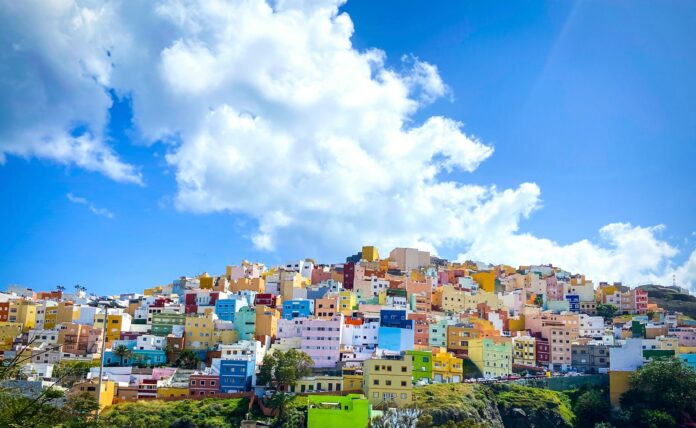Nestled off the southern coast of South Korea, Jeju Island, also known as Jeju-do, is a sublime paradise that offers a blend of thrilling adventure and serene beauty. This volcanic island, brimming with natural wonders, cultural treasures, and culinary delights, is a magnet for both domestic and international travellers.
Jeju Island’s Most Fascinating Sites & Flavours
Whether you’re a nature enthusiast, a history buff, or simply in search of a peaceful retreat, Jeju Island promises an array of unforgettable experiences. Here are 11 incredible things to see and do on this enchanting island.
Marvel At The Majestic Hallasan Mountain
At the heart of Jeju Island towers Hallasan Mountain, a dormant volcano and the highest peak in South Korea. This UNESCO World Heritage site is a haven for hikers and nature lovers. With well-maintained (though often snow-blanketed!) trails, such as the Seongpanak and Gwaneumsa, the ascent to the summit is both accessible and rewarding.
As you climb, you’ll traverse through diverse ecosystems, including lush forests and alpine flora. Upon reaching the crater rim, you’ll be greeted by the stunning sight of Baengnokdam, a crater lake that embodies tranquillity. The panoramic views from the top are simply breathtaking, offering a bird’s-eye view of the entire island and the surrounding sea.
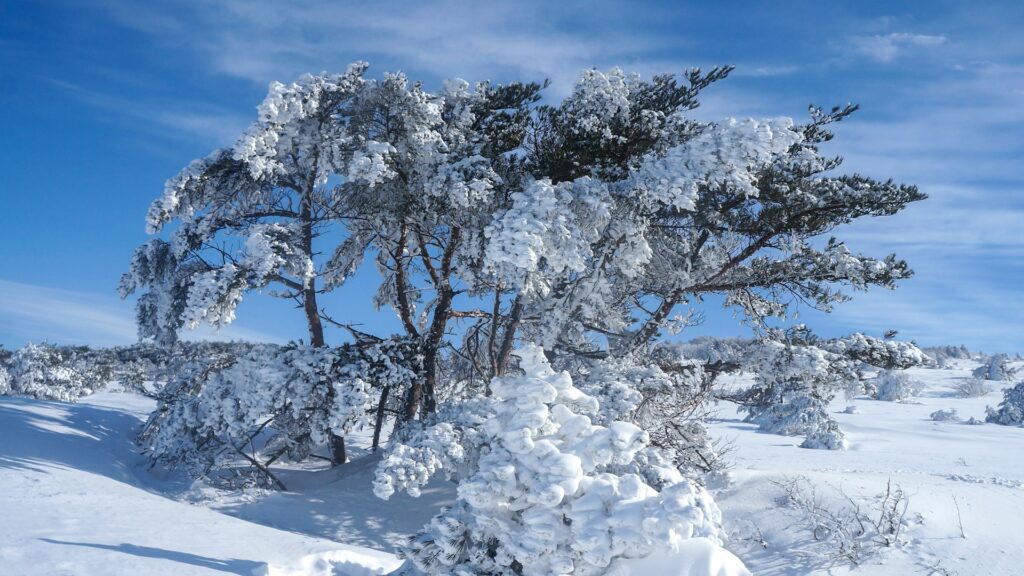
Explore The Mystical Manjanggul Lava Tube
Jeju Island is renowned for its extensive network of lava tubes, formed by flowing lava that solidified on the surface and left hollow corridors beneath. The Manjanggul Lava Tube is one of the longest and most fascinating of these geological formations.
As you venture into this subterranean marvel, you’ll be awestruck by the surreal landscape of stalactites, stalagmites, and the unique lava column that stands as a testament to the island’s volcanic past. The cool interior provides a stark contrast to the island’s surface, making it a perfect escape during warmer days.
Bask In The Beauty Of Jeju’s Waterfalls
Jeju Island is home to several stunning waterfalls, each with its own unique charm. Among the most famous is the Jeongbang Pokpo, which is said to be the only waterfall in Asia that falls directly into the ocean. The sound of the water crashing onto the rocks below, coupled with the spray of the sea, creates a mesmerising spectacle.
Another must-visit is Cheonjiyeon Waterfall, where you can enjoy a leisurely walk through a lush forest before reaching the powerful cascade that plunges into a tranquil pond. For those seeking a more secluded spot, the lesser-known Cheonjeyeon Waterfall, with its three-tiered falls and surrounding greenery, offers a peaceful retreat.
Read: 9 of South Korea’s most iconic dishes and where in Seoul to eat them
Immerse Yourself In Jeju’s Haenyeo Culture
The Haenyeo, or female divers of Jeju, are emblematic of the island’s unique cultural heritage. These incredible women dive into the ocean without the aid of oxygen tanks to harvest seafood, a tradition that dates back centuries and is recognised by UNESCO as an Intangible Cultural Heritage of Humanity.
To learn more about the haenyeo, visit the Haenyeo Museum or take a trip to the coastal villages where you can witness these divers in action. Some haenyeo even offer the opportunity for visitors to experience diving and learn about their sustainable fishing practices firsthand.
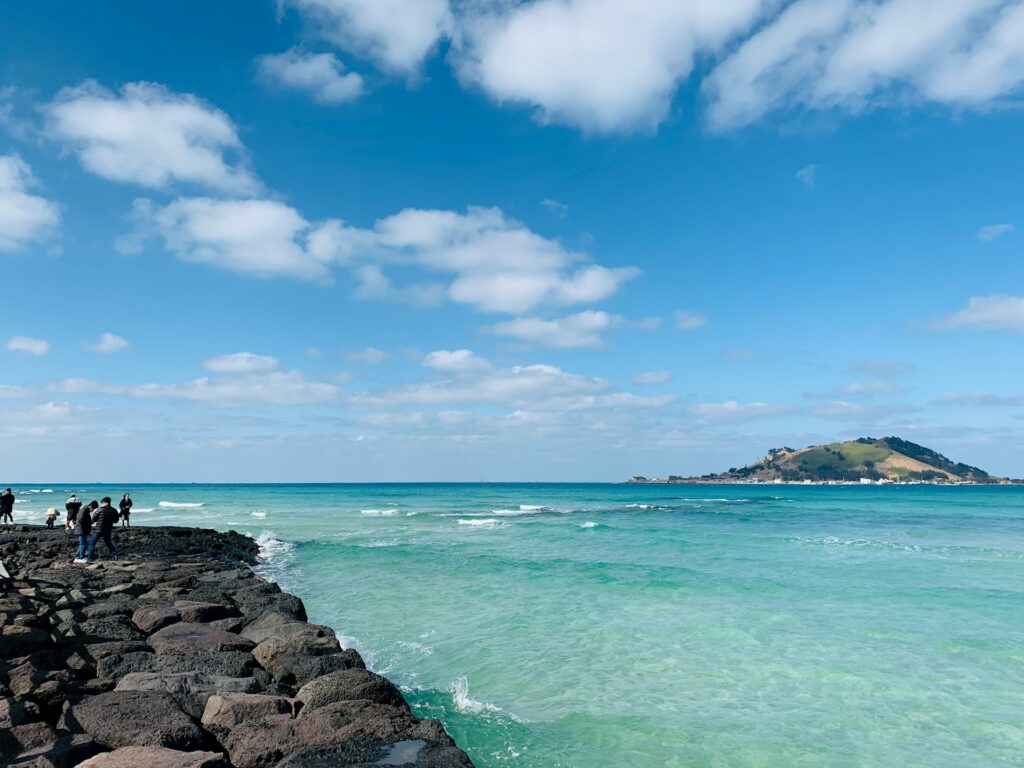
Engage In Water Sports & Marine Activities
Jeju’s surrounding waters are not just for the haenyeo; they’re a playground for water sports enthusiasts. From kayaking and paddleboarding to scuba diving and windsurfing, the island offers a plethora of marine activities. The clean waters and abundant marine life also make Jeju a top destination for scuba divers looking to explore underwater lava formations and vibrant coral ecosystems.
Savour Jeju’s Culinary Delights
No visit to Jeju Island would be complete without indulging in its culinary offerings. The island’s fertile volcanic soil and abundant seas provide a rich array of ingredients that make up its unique cuisine.
Fresh seafood is a staple, with dishes like haemul ttukbaegi (seafood hot pot) and grilled hairtail fish being local favourites. Jeju is also famous for its black pork, which is often served as samgyeopsal (grilled pork belly) and is known for its succulent flavour. For those with a sweet tooth, the hallabong, a type of mandarin orange grown exclusively on Jeju, is a must-try, whether enjoyed fresh or as part of a dessert.
Stroll Along The Shores Of Hyeopjae Beach
Jeju Island boasts some of the most beautiful beaches in South Korea, and Hyeopjae Beach is a standout with its powdery white sand and crystal-clear waters. The beach is backed by a verdant pine forest, and the shallow waters make it ideal for swimming and snorkelling. Nearby, you can also explore Hallim Park, which features a variety of themed gardens, caves, and folk village exhibits.
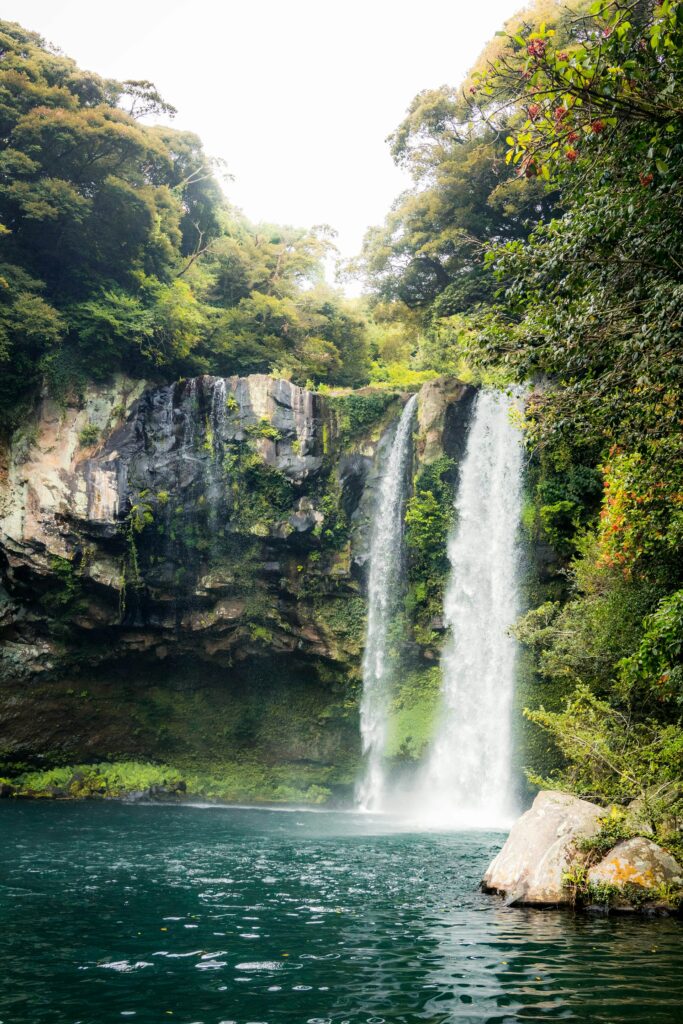
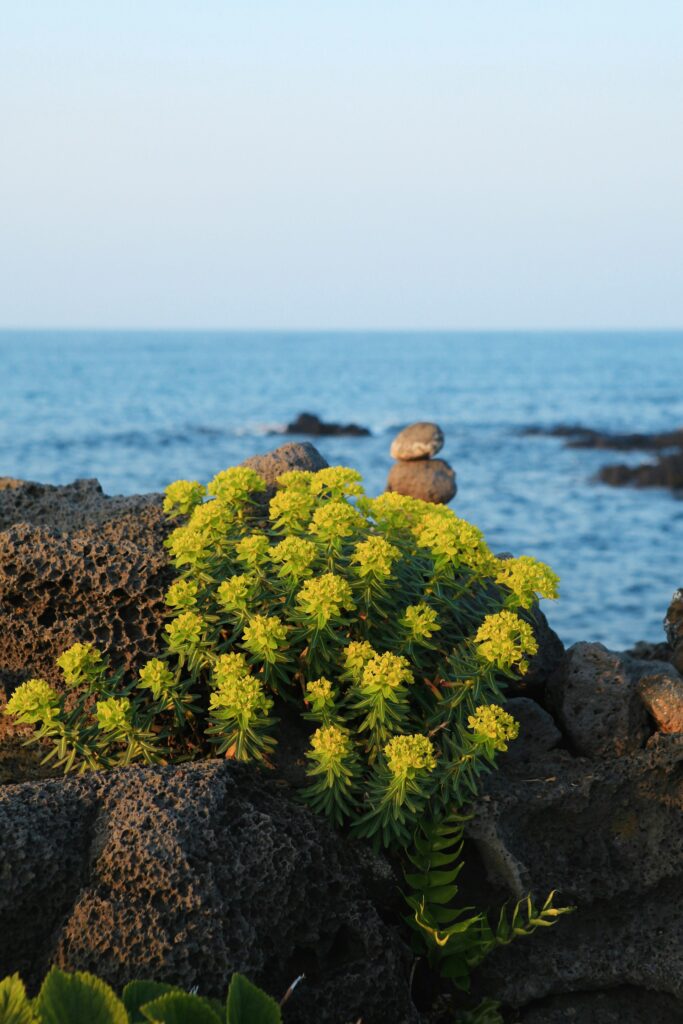
Discover The Folklore Of Seongeup Folk Village
To step back in time and experience Jeju’s traditional life, visit Seongeup Folk Village. This well-preserved village showcases the unique culture of Jeju with its thatched-roof houses, stone walls, and Jeju black pigs. Engage with local artisans, watch cultural performances, and learn about the island’s folk tales and shamanistic rituals that have been passed down through generations.
Witness The Sunrise At Seongsan Ilchulbong Peak
Also known as Sunrise Peak, Seongsan Ilchulbong is a UNESCO World Heritage site and one of Jeju’s most iconic landmarks. This tuff cone crater was formed by hydrovolcanic eruptions over 5,000 years ago. A hike to the summit early in the morning to catch the sunrise is a magical experience, with the sun rising over the horizon and illuminating the crater’s dramatic landscape.
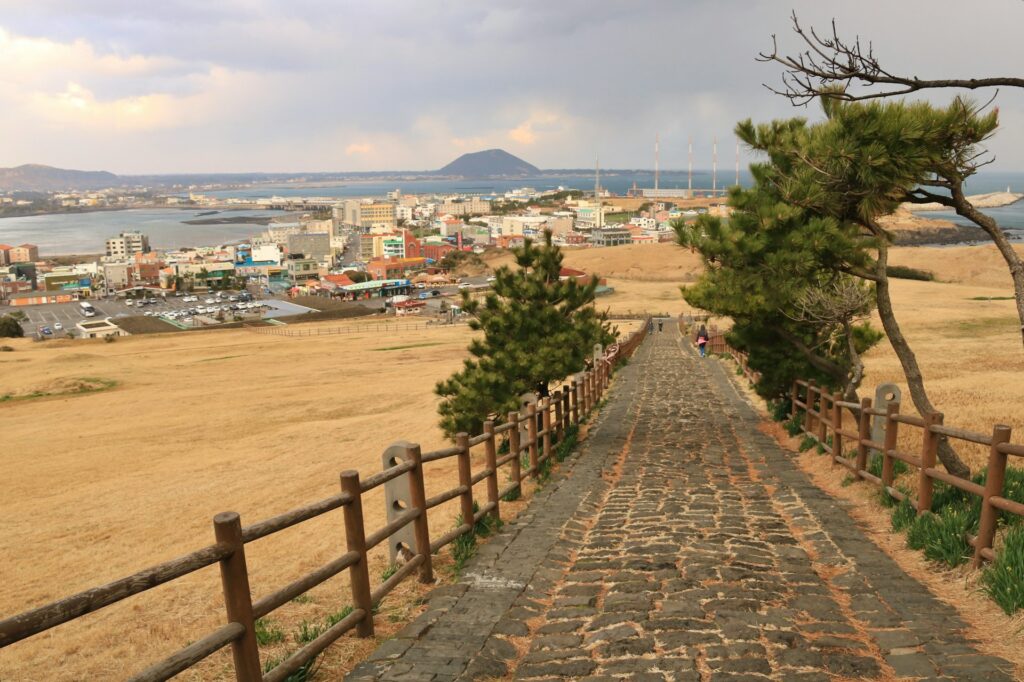
Relax At The Spirited Yongmeori Coast
The Yongmeori Coast is a geological wonder where the sea meets layers of sandstone cliffs shaped like a dragon’s head plunging into the ocean. The name Yongmeori means ‘dragon head’ in Korean, and the coast offers a scenic walk with views of unique rock formations, crashing waves, and seasonal wildflowers. Be sure to check the tide schedule before visiting, as the area is only accessible during low tide.
Experience The Serenity Of Jeju’s Tea Plantations
Jeju’s climate is ideal for growing tea, and the island is dotted with lush tea plantations. One of the most famous is the O’sulloc Tea Museum, where you can learn about Korea’s tea history, stroll through the green tea fields, and sample various types of tea and tea-infused treats. The tranquil surroundings and the aroma of fresh tea leaves provide a perfect setting to unwind.
The Bottom Line
Jeju Island is a treasure trove of natural beauty, cultural richness, and gastronomic delights. Whether you’re standing atop the majestic Hallasan Mountain, exploring the depths of Manjanggul Lava Tube, or savouring the island’s fresh produce, Jeju offers an array of experiences that cater to all senses. So pack your bags, set your sights on this gem of South Korea, and prepare for an adventure that will leave you with memories to last a lifetime.



